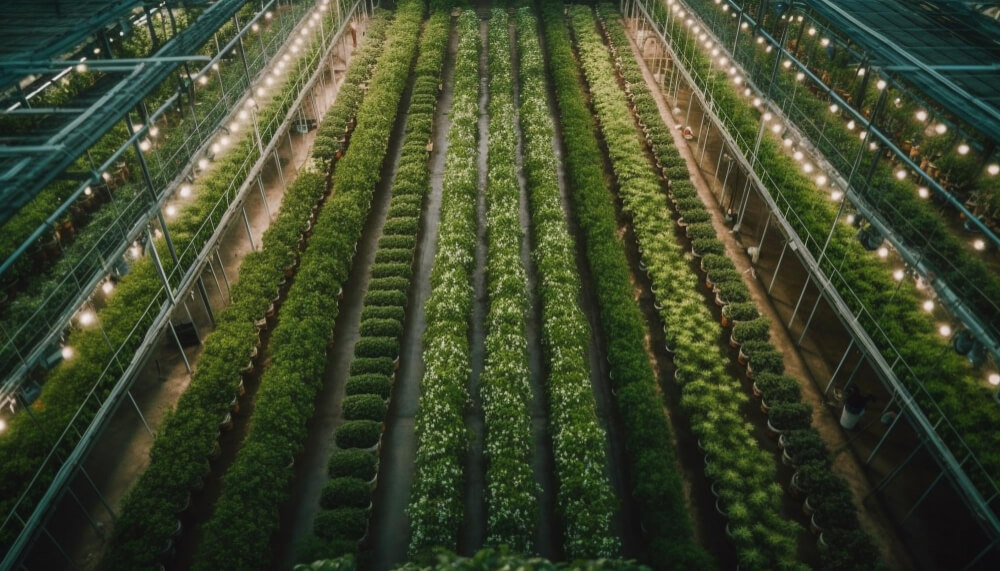Global farming is at a crossroads: the pressure to produce more is relentless, but climate change, land degradation, and water scarcity are putting individual stress on farm production. Farmers are looking to agricultural sustainability practices that maintain long-term productivity and environmental protection to meet these problems. At the center of this movement is the focus on soil health improvement, which makes fields productive, resilient, and able to sustain crop output for years to come.
Auxofarm paces this revolution through scientifically developed fertilizers that blend green inputs of proven efficacy. Not only do these fertilizers feed the fertility of soils, but they also optimize water hold-up and crop resistance, minimizing the use of chemical inputs. By prioritizing balanced nutrition release and soil regeneration, Auxofarm encourages farmers to use agricultural sustainability practices that protect productivity along with the environment.
Why Agricultural Sustainability Practices Matter
The move towards agricultural sustainability practices demonstrates increasing awareness of the limitations of traditional agriculture. Overuse of chemical fertilizers has resulted in reduced soil fertility, loss of biodiversity, and water pollution. These trends endanger long-term productivity and necessitate urgent need for sustainable options.
Auxofarm responds to this necessity by producing fertilizers aimed at soil health improvement. Through the incorporation of organic matter and nutrients into the soil, their products rebalance, reactivate microbial life, and structure the soil. This integrated solution sustains crops while limiting environmental footprint. It is scientifically proven that the application of agricultural sustainability practices of soil health enhancement boosts yields by as much as 40% and lowers input costs (Journal of Sustainable Agriculture, 2022). With these practices, farmers are able to conserve land and be profitable. Auxofarm allows farmers to farm in a way that not only maintains production today but also leaves agricultural ecosystems intact for tomorrow.
Soil Health Improvement as the Core of Productivity
Healthy soil is the key to successful agriculture. Without form, nutrient content, and water content, even the best seeds cannot perform optimally. Soil health Improvement is the solution to all these problems by enabling crops to grow naturally on a healthy medium.
Auxofarm addresses the production of fertilizers that support soil health improvement with humic acids, bentonite, and microbial agents blended together. The ingredients improve microbial diversity, increase water holding capacity, and increase nutrient supply to the plant. The adoption of the practices is in line with general agriculture sustainability practices where the land may be made productive for decades.
Auxofarm’s customers are farmers who attest to having stronger roots, better disease resistance, and superior quality production. This indicates that soil health improvement is not solely a matter of keeping the soil but in terms of experiencing real economic returns. By embracing soil as a living system, Auxofarm offers products that transform agriculture into a regenerative and sustainable activity.
Auxofarm and the Future of Eco-Friendly Farming
Through improved agriculture, firms such as Auxofarm are transforming sustainable farming. Their green fertilizers involve science and usefulness, and they enable farmers to shift from chemical-based farming to balancing and renewal-based agricultural sustainability practices.
Auxofarm products meet a variety of needs: soil health improvement, water use efficiency, and providing balanced nutrition. In the process, they lower dependence on toxic inputs while sustaining or even increasing yields. Studies show that combining agricultural sustainability practices with new products such as Auxofarm will lower greenhouse gases from agriculture while at the same time improving overall soil fertility.
For farmers, following Auxofarm is not a matter of consuming a product, but of adopting farm methods that assure long-term yield and sustainability. With increasing environmental pressures, Auxofarm’s emphasis on soil health improvement and sustainability makes it an indispensable partner in shaping tomorrow’s agriculture.
Cost Benefits of Agricultural Sustainability Practices
The strongest argument for adopting agricultural sustainability practices is the financial benefit they present to farmers. The conventional method results in costly investment in chemical fertilizers, pesticides, and irrigation, which would, over time, drain profitability by a deep hole.
By giving more importance to soil health improvement, farmers lower their reliance on those expensive inputs. Auxofarm fertilizers slowly release nutrients to increase soil fertility for a longer duration and lower the number of frequent applications. Improved water holding capacity also lowers the irrigation expense, in synchronization with sustainability and cost minimization.
A recent Canadian research revealed that farms adopting agricultural sustainability practices such as organic soil amendments saved up to 20% of input costs every year while yield did not get compromised or even increased. Auxofarm’s method accomplishes such savings through fertilizers that enhance soil systems and reduce long-term costs. It demonstrates that sustainability and profitability are achievable when supported by science.
Building Resilient Crops Through Soil Health Improvement
Aside from economics, crop resilience is perhaps the most compelling reason for the implementation of agricultural sustainability practices. Global climate change has made droughts, floods, and unpredictable weather more severe, all threatening farm productions. Crop resilience begins with soil health improvement, through which crops are able to absorb water and nutrients even in stress conditions.
Auxofarm fertilizers are formulated to improve these qualities with stronger root systems, more nutrient uptake, and disease-tolerant plants. Studies show that soil supplemented with superior soil health holds up to 25% more water, or a drought buffer against periods of dry weather. Such drought resistance is passed on as higher-quality crops and steadier yields even in unpredictable climatic regimes.
By adopting agricultural sustainability practices, farmers not only improve their current harvests but also protect future harvests. With Auxofarm’s innovative solutions, farmers can ensure that their crops are healthy, hardy, and adaptable, with the capacity to meet mounting global food demand.
Conclusion
In short, the use of agricultural sustainability practices in farming is no longer a choice but a necessity. Farmers can realize increased productivity, diminished environmental footprint, and decreased expenses, while building long-term sustainability, by making soil health improvement a top priority. The likes of Auxofarm offer the means to make this transition viable and inexpensive, with fertilizers that marry scientific effectiveness and eco-friendliness.
The outcomes are for themselves: more healthy soils, stronger crops, less chemical reliance, and improved financial results for farmers. With the adoption of these practices, the agricultural industry can grow a future where productivity and responsibility go hand in hand. Auxofarm’s dedication to sustainability guarantees that farmers have effective, environmentally friendly solutions at their disposal to provide both short-term outcomes and long-term value. And finally, the way ahead is to align agriculture with nature by adopting agricultural sustainability practices and soil health enhancement, securing a sustainable food system for the future generations.




